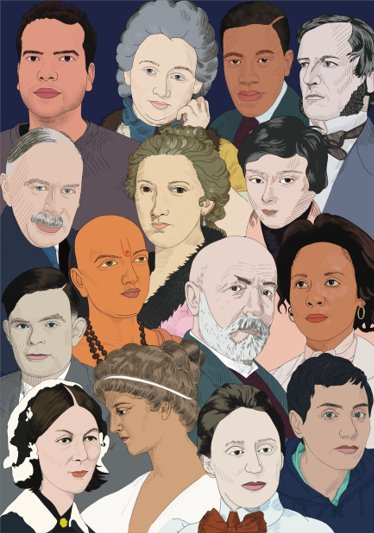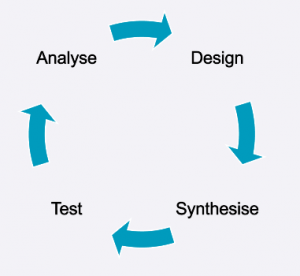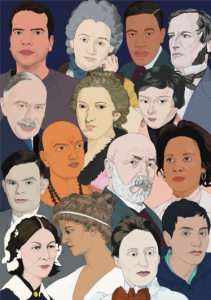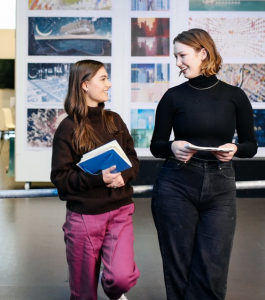
October 6, 2023, by Ben Atkinson
Faculty of Science Takeover: Student Partnerships
Throughout the 2023-4 Academic Year we are running a new feature on the LT blog, a Faculty Takeover month! Each alternate month through the year we will feature posts from a different faculty at the University, with posts every Friday highlighting interesting work related to technology in teaching and learning and showcasing unique projects from within the various disciplines across UoN. Starting in October, we have our Faculty of Science Takeover and the first post can be found below.
In this first post Lynette Carver, Head of Education and Student Experience in Science, shares with us highlights from the recent Student Partnership Workshop which took place in September as forum to share the exciting student engagement work happening across the Faculty of Science. This post was co-written with Ben Atkinson, the Learning Technology Consultant for the Faculty of Science.
Within the Faculty of Science Education and Student Experience Team, we are incredibly passionate about building the best possible student experience and co-creating with students at every available opportunity.
On 18 September we held our Student Partnership Workshop which gave us an opportunity to share lots of best practice and encourage participants to generate ideas on the theme of excellent student partnership.
We heard from colleagues in every school as well as the Faculty ESE team about a range of student co-creation activities, including those related to curriculum design and to building a positive student experience. We also heard about the co-creation of a student recipe booklet and how to design inclusive assessment.
We were delighted that Professor Jenny Marie from the University of Greenwich agreed to be our keynote speaker and shared some of her thoughts on student partnership. It was also fantastic to see so many students involved in these co creation activities at the workshop to present their experiences and also help with facilitation of each group activity.
The day was a combination of conference style presentations from each school, discursive activities alongside the closing keynote. Below you will get a flavour of some of the work being done in the faculty on student partnership:
Pharmacy co-creation of disability short course
Lead by academic colleagues, students were recruited to work on the creation of an independent short course covering aspects of disability and the experience disabled students have when studying at university. Beginning as an EDI course on living and studying with disability, the lived experience of students was integral to this 4-week co-creation project. Students completed training before they undertook the work and this included skills development on Xerte, Moodle and other platforms.
 Chemistry – Industry Ready Graduates
Chemistry – Industry Ready Graduates
Colleagues reflected on 10 years of student partnership in Chemistry working with GSK on placements and industry focused assessments. Beginning in 2010, this industry partnership has lead to the development of several spin-off businesses including DeepMatter Ai (a company looking at digital innovation and ai in STEM). The benefits for students have included digital readiness, creative thinking, and the chance to engage in workable activities that reflect real world environments and change year on year.
Maths – Digital Artwork
 Colleagues in Maths talked about funding a student on the Maths programme who was also a keen artist, to produce artwork for the school building. The idea came out of a piece they had created of the maths building itself and the student was then commissioned to produce further pieces of art highlighting diverse mathematicians from across history, including women and mathematicians of colour. These pieces of art are now on display around the school building and the student has since been commissioned to produce further work for the School of Computer Science.
Colleagues in Maths talked about funding a student on the Maths programme who was also a keen artist, to produce artwork for the school building. The idea came out of a piece they had created of the maths building itself and the student was then commissioned to produce further pieces of art highlighting diverse mathematicians from across history, including women and mathematicians of colour. These pieces of art are now on display around the school building and the student has since been commissioned to produce further work for the School of Computer Science.
Keynote from Prof. Jenny Marie (University of Greenwich)
Prof. Marie led a closing keynote on her experience of student collaboration at UCL and University of Greenwich which she is now a PVC for student engagement.
Empowering students to develop their own ideas involved many difficulties including sustainability, time constraints and funding. These need to be weighed up against the decisions, consequences and education gains or skills the students will learn from being  involved in the project. This work is often about showing students we care and value their input. It should be about dialogue rather than one way delivery and what Cook-Savill calls ‘a collaborative or reciprocal process through which all participants have the opportunity to collaborate equally’. There is always a multiplicity of practice, one project never runs the same as the last.
involved in the project. This work is often about showing students we care and value their input. It should be about dialogue rather than one way delivery and what Cook-Savill calls ‘a collaborative or reciprocal process through which all participants have the opportunity to collaborate equally’. There is always a multiplicity of practice, one project never runs the same as the last.
Some things to consider when approaching student partnership:
- How will you work together? On a project / workshop or with a committee / review panel?
- What approval and training process will there be and how will this be audited?
- Sometimes you will discover things you didn’t know before you started (example of a VLE review which revealed how important navigation was to students, regardless of how good the content on the module might be).
- The idea that extensive training might place students in a deficit, taking them away from the student perspective you seek. There may be a place for training, but it should be appropriate.
- The type of partnership may change the project develops and this is okay!
- Involve the students in all areas of the approach, including in the delivery of seminars and publishing of results and outcomes.
- Challenges can include time, role uncertainty, vulnerability, inclusivity, and representation across your project team.
- Start small, create a series of projects you can reflect on and develop from there.
Prof. Marie also highlighted the International Student Partnership Journal which would be worth considering as a means for publishing future collaborative projects.
We hope colleagues were able to take something inspiring away from the day that could be transferred into their own practise, and look forward to hearing from them at next years workshop!
No comments yet, fill out a comment to be the first

Leave a Reply